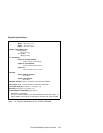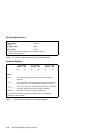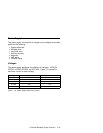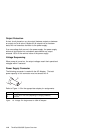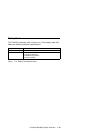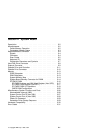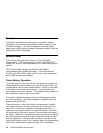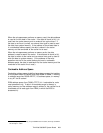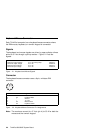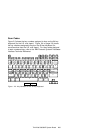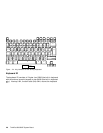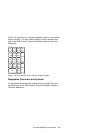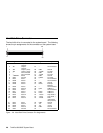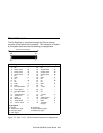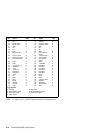
When the microprocessor performs a memory read, the data address
is used to find the data in the cache. If the data is found (a hit), it is
read from the cache memory and no external bus cycle occurs. If
the data is not found (a miss), an external bus cycle is used to read
the data from system memory. If the address of the missed data is
in a cacheable address space, the data is stored in the cache
memory and the remainder of the cache line is read.
When the microprocessor performs a memory write, the data
address is used to search the cache. If the address is found (a hit),
the data is written to the cache and no external bus cycle is used to
write the data to system memory. (If the address of the write
operation was not in the cache memory but was in cacheable
address space, the data is read back into the cache memory and the
remainder of the cache line is read.)
Cacheable Address Space
Cacheable address space is defined as system memory that resides
on the system board (0–640KB and 1MB–40MB or 80MB
). Nothing
in address range hex A0000–BFFFF, I/O address space, or memory
in any AT slot is cached.
ROM address space (hex C0000–C7FFF) is L1 cacheable for
code
read operations only
. If data in this address range is already in
cache memory and the address range is written to, the cached line is
invalidated and is read again from RAM (in which the BIOS is
shadowed in).
Cacheability of system memory is up to 64MB in the L2 cache, and is up to 4GB in
the on-chip L1 cache.
ThinkPad 560/560E System Board 2-3



